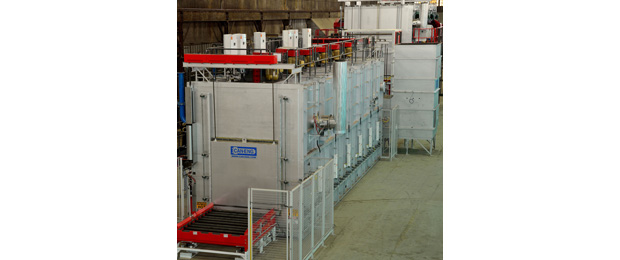The high volume T7 roller hearth heat treating system includes a solution furnace with customized structural product fixtures, Can-Eng’s Precision Air Quench (PAQ) system, an artificial aging system and controls integrated into a Level II Scada system. It integrates a unique combination of recirculating air chambers, distribution nozzles, dampers and directional ductwork that uniformly delivers conditioned quench media leading to repeatable and uniform property and dimensional results. Quench parameters were developed for each component, as part of the component family and once validated were integrated as part of the product recipe.
Can-Eng was chosen for this new light-weighting project because its flexible, cost effective heat treatment technology allows manufacturers to integrate new state-of-the-art processing systems into existing manufacturing cells, avoiding prohibitive large-scale continuous processing systems capital costs. The company focuses on the development of high volume continuous industrial furnaces for challenging applications and is the industry leader in the development of automated heat treating systems for the processing of thin-walled, light-weight aluminum automotive structural components.
Can-Eng Furnaces is an ISO 9001:2008 certified company with its head office and manufacturing facility located in Niagara Falls, ON, Canada. The company is a global provider of state-of-the-art thermal processing systems and a supplier to automotive community through direct and tier supply.
(Source: Can-Eng Furnaces International Ltd.)

Can-Eng Furnaces completes T7 system in California
Kategorien: heat processing | Wirtschaft und Unternehmen
Autor: Redaktion
Datum: 19. Mai. 2016